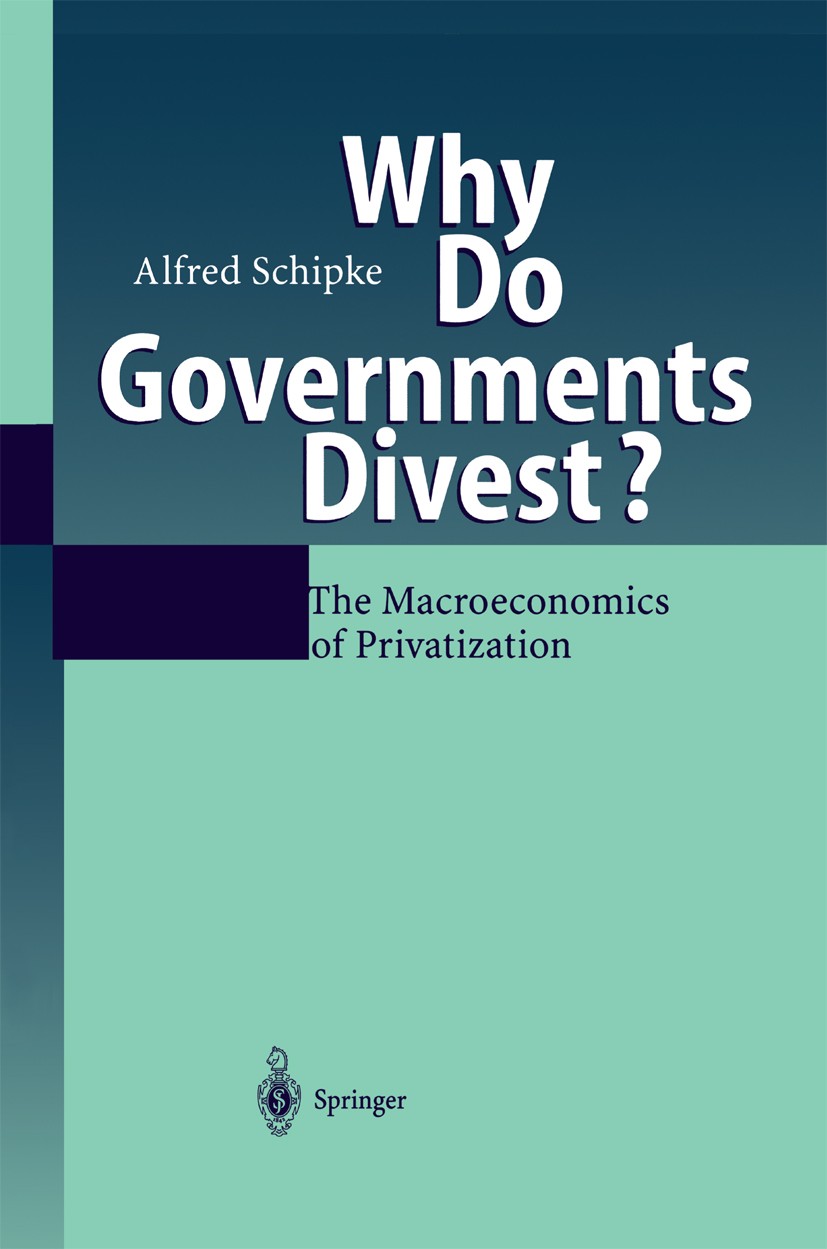| 書目名稱 | Why Do Governments Divest? |
| 副標(biāo)題 | The Macroeconomics o |
| 編輯 | Alfred Schipke |
| 視頻video | http://file.papertrans.cn/1029/1028124/1028124.mp4 |
| 概述 | In-depth analysis of privatization and the short-term political reasons often lying behind it.With several case studies of privatization and its effects |
| 圖書封面 |  |
| 描述 | On an unprecedented scale, nations at all income levels and across the political spectrum have initiated privatization programs over the past twenty years. In the course of this privatization movement, microeconomic efficiency arguments have become the standard justification for the divestment of public assets. This book presents an alternate view and argues that short-term macroeconomic considerations are often the true motive behind privatization programs. .Why Do. .Government. . Divest? The Macroeconomics of Privatization. is a comprehensive treatment of the macroeconomic issues of privatization. In addition to reviewing topics in economic growth and efficiency, this book explores the fiscal, monetary, balance-of-payments, and employment aspects of privatization. Several diverse case studies illustrate how the pursuit of such short-term political objectives can reduce the benefits of privatization. |
| 出版日期 | Book 2001 |
| 關(guān)鍵詞 | Inflation; Nationalization; Privatisation; Privatisierung; Privatization; Public Enterprises; Verstaatlich |
| 版次 | 1 |
| doi | https://doi.org/10.1007/978-3-642-56682-0 |
| isbn_softcover | 978-3-642-62573-2 |
| isbn_ebook | 978-3-642-56682-0 |
| copyright | Springer-Verlag Berlin Heidelberg 2001 |
 |Archiver|手機(jī)版|小黑屋|
派博傳思國際
( 京公網(wǎng)安備110108008328)
GMT+8, 2025-10-13 18:03
|Archiver|手機(jī)版|小黑屋|
派博傳思國際
( 京公網(wǎng)安備110108008328)
GMT+8, 2025-10-13 18:03


